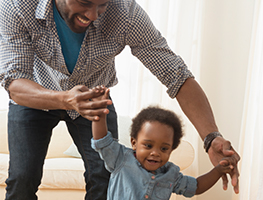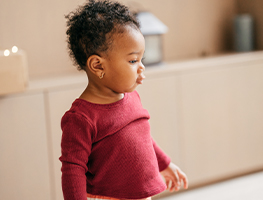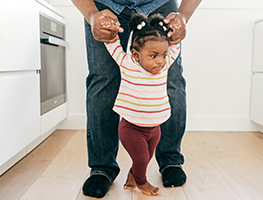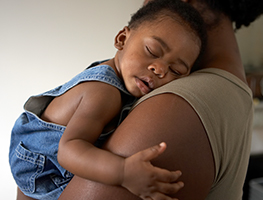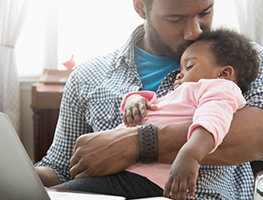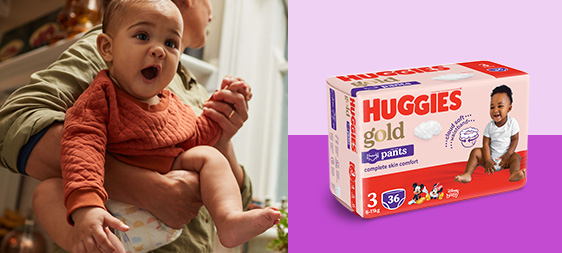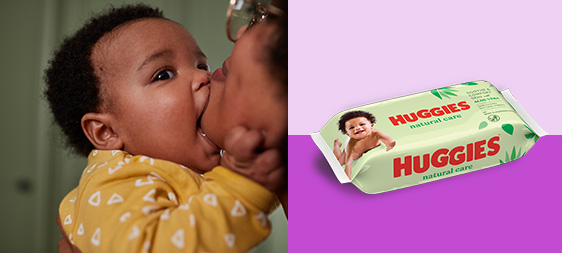Now that you have a toddler in the household it will be as if you are on a voyage of discovery each day along with them. Be prepared to feel like you’ve had blinkers on – you’ll wonder just how you missed all the wonderful things your toddler is seeing for the first time. This is a lovely age, even if a little exhausting for parents. You’ll need to be extra vigilant in scanning every environment just to make sure it doesn’t pose any risks to your child’s safety. And this is what you are likely to find the most wearing aspect of parenting your young child; the potential for harm and the “what ifs”. But try not to restrict their opportunities for growth and discovery; after all this is how they will learn about the world and all the fascinating things in it.
Although your toddler will think they know what they want, you will know what they need. It is the predictability and regular routine of family life which will support your toddler to feel secure. You will find your toddler’s tolerance for long hours of shopping or being out of their own routine is very limited. Try to remember that they are not trying to make life difficult for you when they protest. As they mature and their verbal skills become more advanced, they will be able to communicate more clearly with you. At 13 months this is still some way off so you’ll need to be pretty skilful at interpreting their early attempts at getting their point across.
Growth and development
If your toddler isn’t walking yet, they are likely to be pretty close. Parents who walked early themselves often have children who show the same proficiency. Expect your toddler to walk with their legs some distance apart and to have a wide legged stance. This will help them to maintain their balance, even if it makes them look as if they just got off a horse! As they become more confident their legs will come together and they will adopt a more classic heel to toe gait, rather than placing their whole foot on the ground with each step.
Developmental milestones are intended as a guide only, so try not to see them as a prescription. You’ll find your toddler will have periods of time when they don’t seem to be progressing at all with their development. It might seem as if they are stuck on pause for a couple of weeks and don’t do or say anything new. Then, all of a sudden, it’s as if someone has pushed the “on-button” again.
Your job is to provide an interesting, stimulating and safe environment for them to grow and learn. Try not to push your toddler to develop or consolidate new skills. They are likely to only become frustrated and lose interest. Aim to see your role as being supportive and encouraging, rather than pushing them. Remember that no matter how connected you feel to your 13-month-old, they are a separate and unique individual to you, governed by their own brain and abilities.
Expect alot of inquisitiveness, curiosity and interest this month. Your toddler will be into cupboards, under the beds and climbing onto any surface. This is a busy age and from the moment they are awake, they’ll be off. Your toddler will be able to pick up the smallest items now and still be driven by a strong biological urge to place everything in their mouth. Unfortunately this may not extend to their eating behaviours.
Play and interaction
This is the age where push toys are very popular. Little wagons or trolleys with handles which can be pushed or pulled along are great. Cause and effect toys are also very popular and will teach your toddler about they can control an outcome. Expensive toys are not necessarily better, although they may claim to be. Toddlers love simplicity so save your cardboard boxes and paper bags, empty cartons and wrapping paper. They are more likely to become your 13-month-old’s new favourite toy as opposed to what you’ve bought them.
What you can expect this month
A little more of your toddler’s personality showing through as they learn to exert their own wants and reject what’s on offer. The word “no” will feature strongly in their vocabulary.
Spontaneous cuddles and affection, especially when your toddler is tired. There will be moments everyday when you are reminded that they aren’t so big after all, especially when they first wake up or when they need to go to sleep.
Messy eating and lots of playing with food. Don’t expect too much of your toddler in terms of their table manners. They won’t be able to use cutlery proficiently and will want to eat with their hands and smear food on themselves and the high chair.
Not knowing what is safe to touch and what isn’t. You will need to adapt your household to make sure it is safe. Put precious items away for a couple of years or up high where they can’t be accessed by little fingers. Invest in childproof locks, power point covers, safety gates and stove guards. Speak with an authorised electrician about having a circuit breaker installed in your home’s main powerboard.
Lots of bath times, especially if it’s summer. Baths are a lovely way to cool off, fill a bit of time or just have some fun. Remember, at 13 months your toddler is still too small to be left in a bathtub on their own, so sit on the floor beside them or hop in yourself. Show them how to make soap bubbles, have a supply of plastic pouring toys and rediscover your own inner child.
Food and nutrition
Something seems to happen at around the time of a child’s first birthday when their appetite changes. If your toddler isn’t eating as much as they were and has become fussy, don’t despair, this is very common. This stage reflects a general slowing down of a child’s growth after the first year when they genuinely don’t need as many kilojoules to fuel their growth. Your toddler still needs to be offered foods from the following food groups each day:
Milk or dairy foods, around 3-5 servings a day. If you are still breastfeeding, keep it up. There are significant benefits to both you and your toddler in continuing to feed for as long as you’re both happy. 3-5 breastfeeds a day is fine, or more if it is working for you.
Fruits, vegetables, meat, fish, eggs, cereal and breads need to be offered in their diet.
Try not to worry too much if your toddler isn’t too keen on eating on a particular day. It is their total intake over a few days which counts.
Make sure you offer your toddler water to drink to quench their thirst, not juice, cordial or milk. Water is better for their teeth and won’t add extra kilojoules to their diet.
Keeping your toddler healthy
Get into the habit of washing your toddler’s hands before they eat and before they go to bed. Let them see you adopting sensible hygiene practices around the house as well. Your toddler’s immune system is designed to cope with thousands of toxins each day. There is evidence to support the notion that allergies may be on the increase because we have been too careful about insulating our children from germs.
General tips
Look after yourself as well as you look after your toddler.
Your toddler will learn from your own example about self-respect and confidence. Don’t neglect the basics when it comes to your own nutrition, exercise and grooming. Make an appointment to see your dentist if you haven’t been in the last 6 months.
Check your baby is in the correct size car seat for their age and weight.
Adjust the straps if they are too tight and ensure your baby cannot get out of their restraint.
Develop strict household rules about driveway practices.
Use gates, hand signals or clear prompts that indicate driveways are clear and it is safe to reverse.
If you are smoking, make sure you aren’t in the same room as your baby when you have a cigarette.
Babies of parents who smoke are more at risk to get sick more often, develop asthma, suffer from ear infections and have long-term health problems as they mature.
You can move your baby into their own room now if they’ve been sharing your room.
You may want to do this gradually or just over the course of a day. At 13 months toddlers can disturb their parent’s sleep, and be equally disturbed themselves by room sharing.









